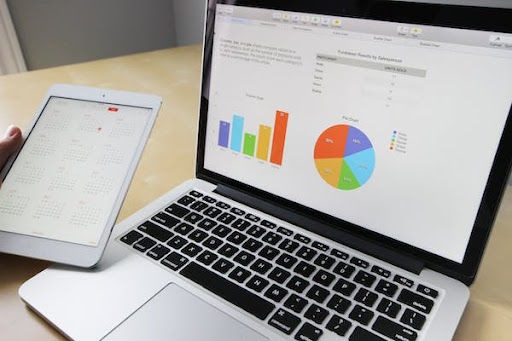A lot of people have realized the benefits of investing in digital and performance marketing. However, many of them are also asking which approach is the best one for them.
The two models of marketing have the same goal for the client. That’s despite being driven by different pricing models. If you’ve been wondering which marketing approach is the best one for you, this is the place to be.
So what is performance marketing? It’s a marketing strategy in which brands only pay for measurable results. This marketing helps brands maximize their impact by reaching the right people. This is done throughout the marketing funnel.
Digital marketing uses digital channels to reach and engage clients. The channels include social media, search engine optimization, email marketing, and paid advertising.
Digital marketing is seen as an investment with long-term goals and results. It also enables you to control your investments since you can choose how much to spend per channel. It also enables you to scale your investment down or up as required. However, the tangible results aren’t as transparent as they are with performance marketing.
Benefits of Performance Marketing
There are a few benefits of performance marketing that can make you consider it. One of the benefits is that this marketing approach is result-driven. This, as mentioned earlier, means that you only pay for the results. Thus, you can be sure that your investment will lead to a positive return on investment.
Performance marketing is also flexible. This approach makes it easy to seek a performance marketing campaign based on the needs of the business.
Performance marketing is transparent. It makes it easier for businesses to have a clear understanding of what they’re paying for. It enables you to track the returns of your investments. Keep in mind that this transparency is not present with other digital marketing strategies.
Benefits of Digital Marketing
There are certain benefits that make this marketing approach an attractive option for brands. The first benefit is that digital marketing is more affordable than performance marketing. It gives you more control over your investments and you also have the liberty to decide on the channels to invest in.
You can, for instance, fine-tune your ads and landing pages to ensure that the right people click on your ads in digital marketing. The leads from Google ads will help you grow your site traffic. This increase in traffic leads to more conversions.
To guarantee this, you must ensure that your website is easy to navigate and that you constantly test new ad copies, keywords, and bidding strategies. That’s what will help you achieve better results.
Compared to performance marketing, digital marketing is also more effective at building brand awareness. This helps businesses reach a larger audience with their messaging. It also enables them to create a more consistent brand identity. This gets done through strategies like:
Inbound Marketing
Social media marketing
Managed search engine optimization
You cannot underestimate the process of building brand loyalty among your target audience through digital marketing strategies. That’s considering that this is a form of internet marketing where you can see real results.
Digital marketing is also flexible since you can change your strategy at any time and quickly adapt to the changes in the market.
Performance Marketing Metrics
Performance marketing is all about the metrics that are used to track the performance of a marketing campaign. Setting the right KPI enables you to focus on driving the results that matter, like conversions and purchases. Some of the KPIs in performance marketing are:
- Referrals
- Downloads
- Lead quality
- Conversion rate
- Lead generation
- Customer retention
- Customer acquisition
- Return on investments
When you set goals and measure the success of your performance marketing strategy, it’s crucial that you understand how every channel operates. Looking at performance marketing metrics from a holistic perspective ensures that your channels work together, not in silos.
Digital Marketing Metrics
Digital marketing metrics and KPIs are what marketing teams use to measure and track the performance of campaigns.
Digital marketing teams use various platforms and tools to promote their products or service offerings. They also use these platforms to track the results, which can be time-consuming and challenging.
When digital marketing teams develop specific marketing KPIs and track them on a dashboard, it suddenly becomes easy to set goals and KPIs. It also becomes easy to measure performance against those values. Below are some of the data-driven digital marketing metrics:
- Cost per lead
- Returning visitors
- Click-through rate
- Goal completion rate
- Customer lifetime value
- Customer acquisition cost
Revenue is the most important KPI, and as such, all KPIs must lead to revenue. Revenue is very important; however, a lot of marketers also have a few KPIs such as return on ad spends. These KPIs are used to measure the levers behind revenue growth.
Revenue helps shed light on the income generated across the various revenue streams. This is a quick way to look at the high-performing and underperforming parts of the business.
Performance Marketing Channels
Performance marketing means that your messaging and KPIs get aligned across channels. That way, every piece of your marketing strategy gets focused on driving results. Some of the main performance marketing channels include:
- Paid social: performance marketing enables brands to increase their return on ad spend. This is done by strengthening your relationships with new and current customers across the marketing funnel.
Note that when driving conversions, you won’t have to use vanity metrics to measure your paid social success. This also allows you to test your creative messaging and targeting approaches to find what makes sense for your brand. - Paid search: strategic targeting and testing enables brands to make the most of their paid search investments. Continually optimizing around your business goals for your keyword targeting enables you to turn more searches into clients.
The integration of an omnichannel approach in performance marketing helps brands use cross-channel insights to increase performance and profitable bids. - Programmatic and display ads: performance marketing allows organizations to optimize their media spending via testing and transparency. This means that you get a higher ROI and more significant business results.
A targeted approach to programmatic and display advertising means that you can access metrics on how, when, and where clients are engaging with your brand. - Affiliate marketing: this performance marketing channel enables brands to connect with influencers and publishers on their platforms. An integration of affiliate marketing with paid search allows you to focus on long-term profitability instead of short-term wins.
Digital Marketing Channels
Digital marketing channels can be referred to as the conduits of a digital marketing strategy. The main role of digital marketing is to leverage the power of the internet and other digital technologies. This helps to increase awareness and other critical metrics.
Let’s dive into some of the digital marketing channels:
- Content marketing. This is about the strategic planning, creation, publication, and distribution of valuable content. Unlike ads that interrupt a person while online, content marketing delivers value throughout the customer journey. Relevant content enables you to engage in deeper communications. It also allows you to showcase a brand’s personality and start a relationship with your audience.
- Search engine optimization. SEO helps to improve organic search engine rankings in order to build awareness. It also helps to capture demand and drive qualified traffic to your website. It enables brands to reach their audience when they’re actively seeking answers. In short, you can influence your audience when they’re most receptive to your message.
- Email marketing. This marketing channel is the easiest way to connect with your audience. On average, email marketing helps to boast a high ROI. It also offers you a direct connection with the audience. It allows brands to tailor their messages to a specific audience and nurture audiences over time through automation.
Why Should You Choose One Over The Other?
Apart from the media they use, the most noticeable difference between performance marketing and digital marketing is how they aim to influence search intent. Search intent is what determines what people are looking for when they search. A successful campaign can leverage search intent to increase sales or reach a certain goal.
Keep in mind that performance marketing relies on ads that have measurable outcomes, such as the time spent watching an ad. The other measurable outcome is purchase conversions. Basically, digital marketing uses content and messaging to offer clients more value through:
- Original articles
- Interacting videos
- Informative images
The digital tactics are aimed at telling the consumer why certain products exist, who they benefit from, and how to purchase them. The tactics then result in converting prospects into clients over time.
When deciding which approach to use, think about how you’d like to establish your brand’s position concerning your competition. That will influence where you spend your time. It will also determine how much money you invest in marketing.
If a brand wants to take the lead in its industry, for example, it may decide that content creation and SEO will help them achieve that goal more effectively than performance marketing.
You should also think about the kind of long-term growth that you want your business to achieve. Is it much better to generate leads now, or would you rather be seen as an authority in your field and slowly build a following? This will also serve to influence the strategy that you choose to work with.
Conclusion
There are significant differences between performance marketing and digital marketing. That’s why it’s important to consider your business goals when choosing a marketing strategy. After that consideration, choose a marketing strategy that will help you reach the target goals and generate more sales.






